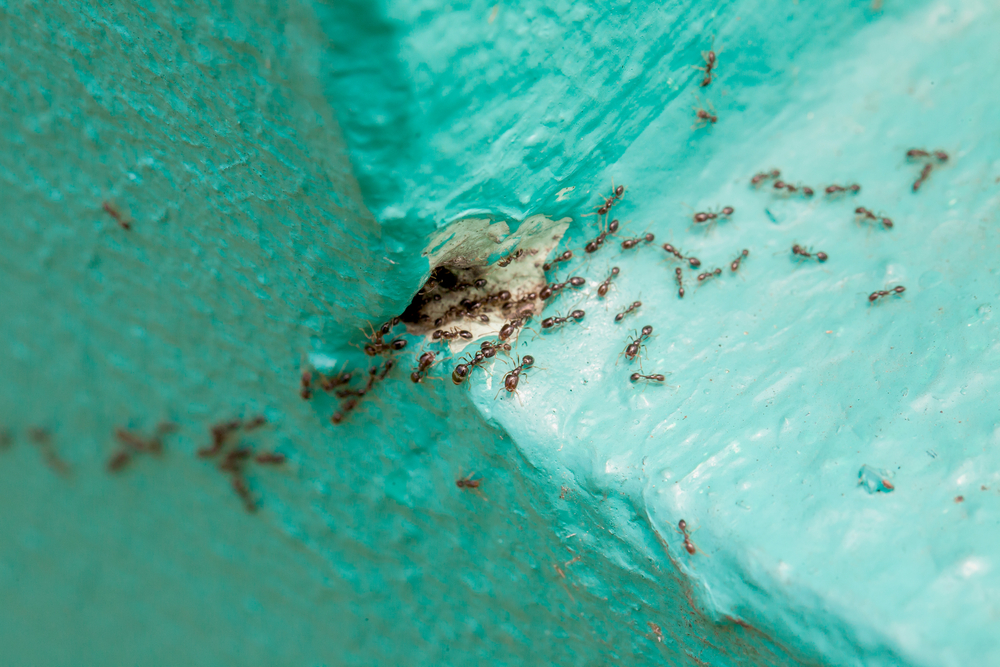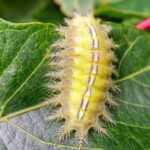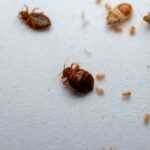Ant Control: Simple and Effective Solutions
Learn effective ant control methods to protect your home. Discover safe ways to get rid of ants and prevent future infestations easily.
Top Methods for Effective Ant Control at Home
Need to get rid of ants in your home? This ant control guide will help you identify common ant species and provide step-by-step methods to eliminate them. Learn how to tackle carpenter ants, fire ants, and Argentine ants effectively.
- Identifying the specific ant species in your home is crucial for implementing targeted control strategies, with common species including carpenter ants, fire ants, and Argentine ants.
- Natural remedies, such as diatomaceous earth, essential oils, and vinegar solutions, offer effective and safe alternatives for controlling ant populations without harsh chemicals.
- Preventing future infestations involves maintaining cleanliness, sealing entry points, and performing regular yard maintenance to reduce factors that attract ants.
Identifying Common Ant Species
Identifying common ant species is essential for effective control. Each species has unique behaviors, nesting habits, and control methods. Understanding the type of ants in your home allows for targeted efforts and better prevention of future infestations.
Among the myriad of ant species, some of the most common invaders in homes are carpenter ants, fire ants, and Argentine ants. Understanding the characteristics and behaviors of these ants can significantly improve your ant control strategies.
Carpenter Ants
Carpenter ants are notorious for their wood-hollowing habits. Unlike termites, they don’t eat the wood but excavate it to create their colonies, often leading to structural damage in homes. These ants are typically larger than other species and can be identified by their black or dark brown color.
To control carpenter ants, it is essential to locate their nesting sites. Here are some steps to follow:
- Look for wood shavings, which are a tell-tale sign of their activity.
- Use liquid ant baits, as these baits attract ants and allow the insecticide to be carried back to the colony.
- Implement regular pest control measures.
- Seal entry points to help prevent future infestations.
By following these steps, you can effectively manage carpenter ant problems.
Fire Ants
Fire ants, particularly the red imported fire ants, are known for their aggressive behavior and painful stings. These ants form large colonies that can house hundreds of thousands of workers, making them a formidable pest to deal with. When disturbed, fire ants can attack in swarms, causing significant discomfort and even allergic reactions in some individuals.
To control fire ants effectively, follow these steps:
- Target the entire colony.
- Use liquid ant baits and insecticides to kill ants and reach the queens deep within the nest.
- Consult a pest management professional for severe infestations, as they can provide comprehensive treatments to eradicate these pests.
By implementing these strategies, you can manage fire ant populations more effectively.
Argentine Ants
Argentine ants are small but mighty in numbers. These light brown ants are known for forming supercolonies, which can consist of numerous queens and millions of workers. Their strong foraging abilities and dense populations make them a highly invasive species that can outcompete native ants for resources, similar to an ant colony.
Persistence is key in controlling Argentine ants. Liquid ant baits attract ants, who then carry the poison back to the colony, making them particularly effective. Maintaining clean and sealed environments can help prevent these ants from establishing themselves inside your home.
Natural Remedies for Ant Control
Natural remedies provide a safe and non-toxic alternative to chemical ant treatments. Using common household items, these methods repel or kill ants, making them ideal for homes with children and pets.
Natural solutions can be just as effective as commercial products when used correctly.
Diatomaceous Earth
Diatomaceous earth is a natural powder made from fossilized algae. When ants come into contact with this powder, it damages their exoskeletons, leading to dehydration and death. This method is non-toxic to humans and pets, making it an excellent choice for indoor and outdoor use.
Sprinkle diatomaceous earth in areas where ants are visible and along their trails. Reapply after rain or cleaning to maintain its effectiveness. This approach can significantly reduce ant populations without the need for harsh chemicals.
Essential Oils
Essential oils are another natural remedy that can help repel ants. Oils like peppermint, tea tree, and lemon eucalyptus have strong scents that ants find unpleasant. These oils can be mixed with water to create a spray that disrupts ant activity and deters infestations.
Mix a few drops of essential oil with water and spray around entry points, along ant trails, and in common ant areas for best results. Cinnamon oil can also be used, as it not only repels ants but can suffocate them upon contact.
Vinegar Solutions
Vinegar solutions are a simple yet effective way to disrupt ant trails. White vinegar can mask the pheromone trails that ants use to navigate, making it harder for them to find their way back to food sources. This can significantly reduce ant activity in your home.
Mix equal parts white vinegar and water, then spray around entry points and along ant trails. This disorients ants and serves as a deterrent for future infestations.
Homemade Ant Baits
Homemade ant baits can be an effective tool in your ant control arsenal. These baits use common ingredients like sugar and boric acid to attract ants and kill them.
Strategically placing these baits can target ant colonies and significantly reduce their numbers.
Boric Acid Mixtures
Boric acid mixtures are a popular choice for homemade ant baits. When combined with sugar or honey, boric acid creates a bait that lures worker ants, which then carry the toxic substance back to the colony, killing other ants.
Mix three parts sugar with one part boric acid and a bit of water to create a paste for boric acid bait. Place the bait in active ant areas and be patient, as it may take a few days to take effect.
Cornstarch Traps
Cornstarch traps offer a unique method for controlling ants. When ants come into contact with cornstarch, it can trap and suffocate them effectively. This method is safe and non-toxic, making it a good option for households with pets and children. This method is safe and non-toxic, making it a good option for households with pets and children.
Spread cornstarch around ant trails and nesting sites. When mixed with water, it forms a material that suffocates ants, providing effective control.
Preventing Future Infestations
Regular cleaning and maintenance practices can prevent future ant infestations, eliminating the conditions that attract ants and making your home less inviting to these pests.
Sealing Entry Points
Seal entry points by using caulk or weather stripping around doors and windows to block ant access routes.
Inspect your home for potential entry points and seal any gaps you find. This simple measure can significantly reduce the likelihood of an ant infestation.
Removing Food Sources
Store food in airtight containers, clean up crumbs and spills regularly, and avoid leaving pet food out for extended periods to prevent ant infestations.
By eliminating food sources, you make your home less attractive to foraging ants, reducing the chances of an infestation.
Yard Maintenance
Keep your yard clear of debris and excess moisture, and trim back shrubs and plants to reduce ant hiding spots and prevent nests near your home.
Regular yard maintenance can create an environment that is less conducive to ant infestations, protecting your home from these pests.
Professional Pest Control Options
When natural remedies and homemade baits aren’t enough, professional pest control options offer a comprehensive solution. Pest management professionals have the expertise and tools to tackle severe infestations and prevent future problems.
Eco-Friendly Exterminators
Choosing eco-friendly exterminators can significantly reduce the environmental impact while effectively managing pest populations. These professionals use methods that are safe for both your home and the environment.
Eco-friendly pest control methods can be customized to address specific pest issues in different home environments, providing an effective and sustainable solution for ant control.
Identifying the type of ants invading your home is the first step toward effective control. Using natural remedies and homemade baits can help manage ant populations safely and effectively. Preventative measures such as sealing entry points, removing food sources, and maintaining your yard are crucial in keeping ants at bay.
Don’t let ants take over; take action today and reclaim your space.
Frequently Asked Questions
How can I identify which type of ants are in my home?
To identify the ant species in your home, observe their size, color, and behavior. For example, carpenter ants are large and dark, while fire ants are small and red, and Argentine ants are light brown and aggressive, often forming supercolonies.
Are natural remedies for ant control effective?
Natural remedies such as diatomaceous earth, essential oils, and vinegar solutions can effectively disrupt ant activity while being safe for humans and pets. Consider using these options for a more natural approach to ant control.
How do I make a homemade ant bait?
To effectively create a homemade ant bait, mix three parts sugar with one part boric acid and add a little water to form a paste. Place this bait in areas where ants are active to attract and eliminate them.
What steps can I take to prevent future ant infestations?
To prevent future ant infestations, seal entry points with caulk or weather stripping, store food in airtight containers, and keep your yard clean and well-trimmed. Taking these steps will significantly reduce the likelihood of ants invading your space.
When should I call a professional pest control service?
You should call a professional pest control service if natural remedies fail or if you are dealing with a severe infestation. Their expertise will ensure effective treatment and resolution of the problem.



